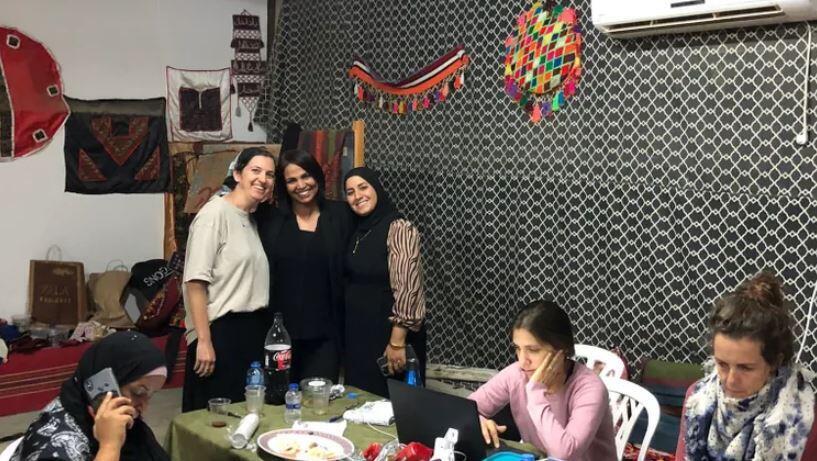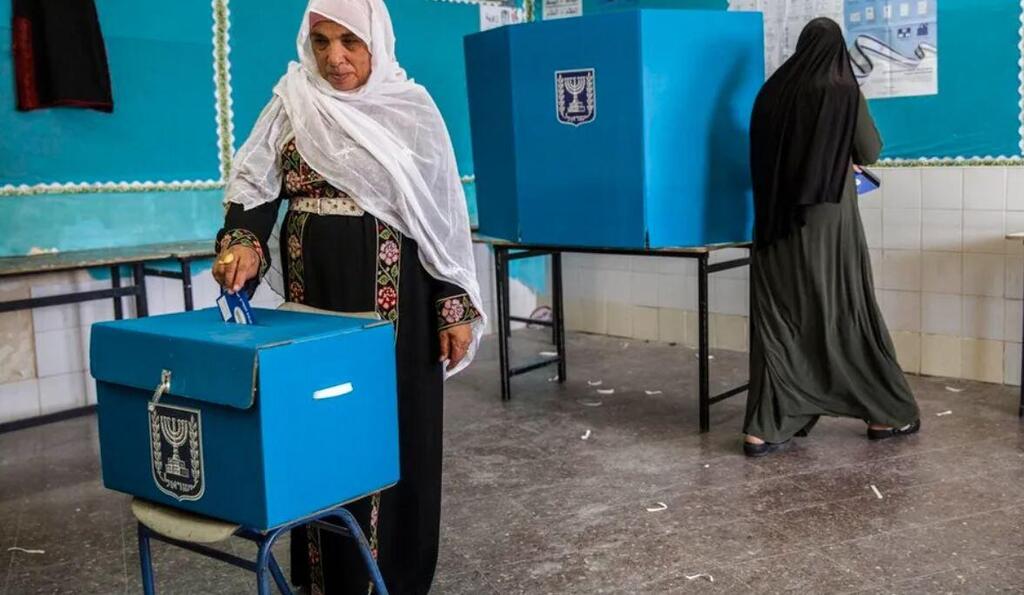Lee Caspi mastered a routine on Election Day. After submitting her ballot, she would take a break from the political whirlwind that Israelis have faced for the past four years and find solace on the beach, at a park, or with a hike.
But this time around, she spent her day a bit differently – driving Bedouin women in the southern Negev desert to polling stations so that they could join in the otherwise rudimentary activity of voting.
“It’s become hard for me, like for many Israelis, to get enthusiastic about elections,” said Caspi, an Israeli-Jew who works for the Physicians for Human Rights–Israel NGO.
“I saw this as an opportunity to find new energy and to take part in a democratic project. And we achieved that,” she told i24NEWS.
Israel’s fifth election in less than four years came and went with yet another government transition as the result. But behind the curtain were those in unrecognized Bedouin villages, where residents have limited – if any – access to basic services or infrastructure, including paved roads, electricity, and polling stations.
And where women of the Bedouin community are especially constricted, being effectively unable to leave their own villages due to traditional values and gender roles.
Ahead of snap elections in September 2019 – the second out of five – campaigning organization Zazim realized the lack of votes that came out of the Negev in the previous ballot, and found that unrecognized Bedouin villages were as close as 12 miles or as far as 45 miles from the nearest polling station.
Thus, a volunteering operation was kickstarted to transport Bedouins to voting sites and encourage them to take part.
But among the several obstacles, one was particularly striking: A Bedouin woman rarely interacts with strangers, especially unfamiliar men, and when traveling by car or public transportation she is bound by societal norms to only do so with her husband, a family member, or another woman.
“That’s why all the volunteers had to be women. Which ended up allowing there to be a huge phenomenon of solidarity,” said Shuli Dichter, an organizer of the semi-official network.
“I took initiative because I couldn’t stand thinking that these people weren’t able to vote,” he noted.
Among the hundreds of female drivers who signed up was Israeli activist Esti Shohat Rozenfeld, who grew up in a small town near a Bedouin village and who wanted to help build what would become a crucial service for the “neglected population.”
“For that first time, the turnout was huge, much more than we could handle,” Rozenfeld said, recalling: “We didn’t have maps, no connections with people from the villages, but we did what we could.”
Unrecognized Bedouin villages dot the northern Negev. They were either built without authorization from the Israeli government or predate the Jewish state itself, leaving them ineligible for municipal services such as connection to the electrical grid, trash pick-up, or nearby bus stations.
While they aren’t accurately marked on any official maps, they are often near military firing zones, natural reserves, or landfills.
“We want to help women in the community grow into leaders. Once they understand how much power they have, the change will be so deep that we won’t be needed there,” Rozenfeld said.
With no direction or experience in navigating the uncharted territory, Rozenfeld and Dichter – the incumbent leaders of the initiative after Zazim dropped out for undisclosed reasons – met with the remaining volunteers at a gas station in the Negev, drawing the attention of nearby Bedouins. Among them was Hanan al-Sanah, a local activist and lawyer of Women Lawyers for Social Justice, who brought the volunteers to her world.
Al Sanah
Hanan was born in a Bedouin neighborhood in the central Arab-Israeli city of Lod, but moved back to the Negev – or the “Naqab” – at the age of 18 to live among her tribe Al Sanah, one of several clans of the nomadic Arab population.
After studying Middle East History at Ben Gurion University in Be’er Sheva, she used her education “to help Bedouins who struggle as women but also as Arabs living in Israel,” Hanan told i24NEWS.
2 View gallery


Hanan al-Sanah (C) alongside Bedouin and Jewish activists in the unrecognized Bedouin village of Wadi al-Na'am, southern Israel, on November 1, 2022.
(Photo: Watan Madi via Hanan al-Sanah)
“When I was in school, most Bedouin women above 35 years old were illiterate. Not because of our culture, but because they didn’t have access to education,” she continued.
“So I directed my focus to unrecognized villages. First, we dealt with education, then economic means, and now political participation, to give these women a voice.”
‘Part of a solution’
On November 1, 2022, hundreds of volunteers from across Israel made the trip south to help Bedouin women vote. Some 67 local activists led by Hanan were waiting for them – coordinated by the political advocacy group Regional Council of Unrecognized Villages – to help organizers like Dichter, direct drivers like Lee Caspi through villages, and in some instances knock on doors inviting Bedouin women to vote.
“In each car, you had a Jewish woman, next to her a local Bedouin activist, and in the back, up to three Bedouin women,” said Dichter, adding that this “sent a message across the Negev that women from as far as Tel Aviv are aware of their situation and coming in solidarity.”
Each driver was allocated to a specific village, which had its own tent headquarters of local male and female activists “who seemed like important community members to connect us to those who needed rides,” Caspi explained.
After taking her first passenger, an elderly Bedouin woman, to cast her vote, Caspi was invited into the lady’s home upon returning to the village, where she practiced her Arabic as they talked about animals. But only for a brief moment before Caspi was called and given directions to the home of the next woman who needed a lift to Rahat – the largest Bedouin city in the world and the only one in Israel with city status – an hour-long round-trip excursion.
“It was mind-boggling how far we had to take them. But if there’s something small I can do to make Arab women feel like there is a Jewish person who cares, then I should do it,” Caspi said.
By the end of the day, almost 3,000 Bedouin women – who otherwise likely wouldn’t have made it to a polling station – voted.
“It was a happy day for these women. They were grateful, they felt important, like part of a solution,” Hanan recalled.
“It’s still not enough, but it’s step by step. A woman I work with told me she wants to work in parliament. That made me happy. That’s what we’re working for, to breed hope, to convince women that they have a voice.”


